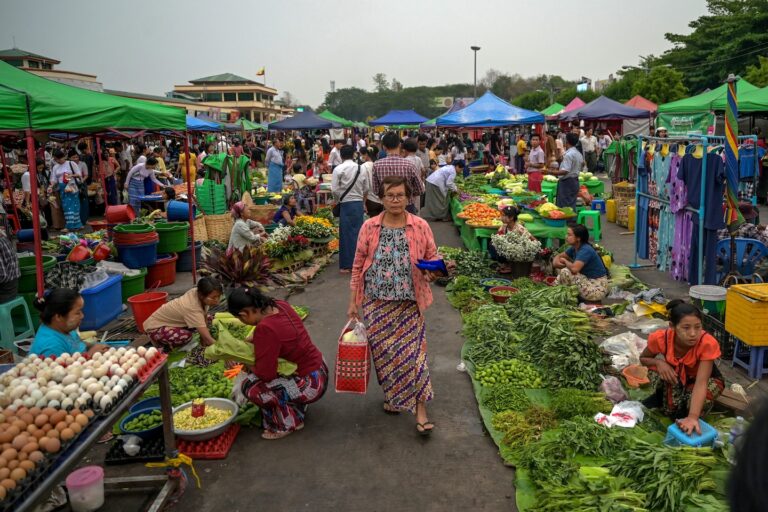
[ad_1]
The report, which entailed more than 12,600 interviews, is one of the largest surveys in Myanmar since the military sparked the civil war by seizing power in 2021, and represents a rare accounting of economic upheaval in what was one of Asia’s most promising emerging markets. After decades of isolation, Myanmar began liberalizing and opening up to foreign investment in 2011. In 2016, according to the International Monetary Fund, Myanmar’s economy grew faster than any other in the world.
“This was a country that was on a very positive trajectory,” UNDP administrator Achim Steiner said in an interview from New York. Now, Myanmar’s economy is “imploding” and there are no indications this will stop without intervention, he added.
For three years, pro-democracy insurgents have been fighting against military rule, joining ethnic rebel groups that have been waging war for decades. The junta has carried out what human rights investigators call crimes against humanity in a brutal campaign to crush the opposition. Even for those not involved in combat, daily life has become unbearable, the UNDP said in its report.
The value of the Myanmar currency has cratered. Hundreds of thousands of workers have left the country, and wages have stagnated even as commodities have grown more expensive. Millions in Myanmar have found themselves in “free fall,” unable to maintain a livelihood because their workplaces have been shut or destroyed, or because these people have been forced to flee the violence, Steiner said.
Myanmar’s GDP contracted by about 18 percent in 2021 due to the dual effects of the coup and the coronavirus pandemic. Military leaders claimed last year that the economy was recovering and that GDP would grow by 4 percent annually. But in December, the World Bank released a forecast that said economic growth would be closer to 1 percent.
The deepest pockets of suffering are in areas of intense conflict, said the UNDP. In the small, southeastern state of Kayah, where a rebel movement has been met with indiscriminate military airstrikes, household income has halved since 2021 — the most of any state. Median income per capita has dropped to about $14 per month, which is less than what the U.N. considers the minimum required to meet what’s needed to survive.
When the UNDP concluded its survey in October, about 25 percent of Myanmar’s population had been “hanging by a thread,” the agency said. Since then, major rebel offensives have increased conflict across the country, likely pushing much of that population over the brink and into poverty, say U.N. officials.
The military, meanwhile, shows no signs of slowing its campaign, said Richard Horsey, a senior adviser on Myanmar for the International Crisis Group. In February, amid reports of poor troop morale, the military announced it would begin conscripting new soldiers.
The military derives much of its funding from exploiting natural resources and operating illicit or unregulated businesses, say security analysts. Last year, Myanmar became the world’s top producer of opium, surpassing Afghanistan, according to the U.N. Office on Drugs and Crime. The country has also become one of the world’s biggest hubs for online scam operations.
So even as the formal economy collapses, the military has found ways to continue financing its war effort, Horsey said. “It’s the ordinary people,” he added, “for whom life is going to get more miserable.”
[ad_2]